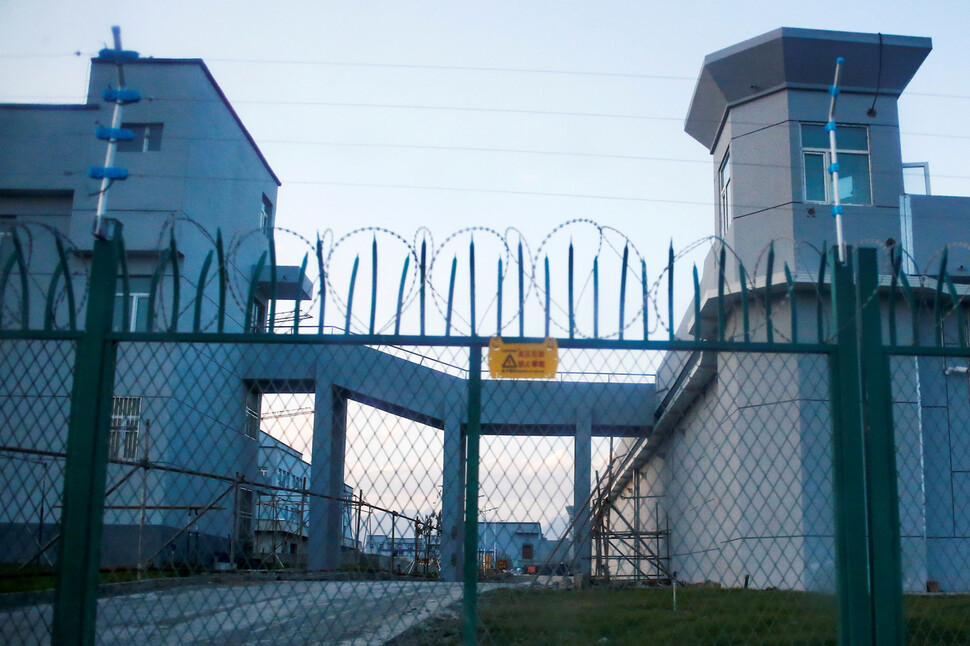A facility in Urumqi, Xinjiang Uighur Autonomous Region, claimed by the Chinese government as a vocational training center. The photo was taken in 2018. Reuters Yonhap News
As China and the European Union (EU) exchange sanctions over the human rights abuses in Xinjiang, ratification of the bilateral investment agreement, which was concluded at the end of last year after long-term negotiations, is struggling. Summarizing reports from news outlets on the 24th, the European Parliament completely canceled discussions for ratification of the China-European Union Comprehensive Investment Agreement (CAI) scheduled for the previous day. “The two major branches of the European Parliament, the Center-Left Social and Democratic Party, have decided to stop discussing ratification of the investment agreement until the Chinese side’s sanctions against the European Parliament are lifted.” “It is politically impossible to vote.” China and the European Union expanded their access to the Chinese market in the fields of telecommunications, finance, and electric vehicles at the end of last year after 30 rounds of negotiations over 7 years, starting with the first negotiations in January 2014. It has concluded a bilateral investment agreement based on the framework. However, the situation changed when the European Union imposed sanctions on the four people in charge of human rights violations in Xinjiang and local public security agencies on the 22nd, such as banning travel and freezing assets. This is because China immediately rebelled against it, designating 10 individuals and 4 organizations, including members of the European Parliament, as the subject of sanctions. “China’s retaliatory sanctions are regrettable and absolutely unacceptable,” said Valdis Dombrovskys, deputy chief of the European Union’s trade department. “The ratification of the investment agreement cannot be handled separately from the overall EU-China relations.” It’s a problem.” Earlier, immediately after the conclusion of the investment agreement at the end of last year, it was evaluated that “Europe has gained economic benefits, while China has taken political assets.” This is because if the European Union stands in a neutral position in US-China relations with the conclusion of the agreement while the Joe Biden administration is preparing for an offensive against China through the restoration of the alliance, China could suffer a’diplomatic breath’. However, as bilateral relations deteriorate and ratification of the agreement is difficult, a certain political blow seems inevitable for China. Correspondent from Beijing/Inhwan Jung [email protected]
newsletter
Every morning, every Thursday day
A friendly newsletter that will save you from the flood of news.
Meet
